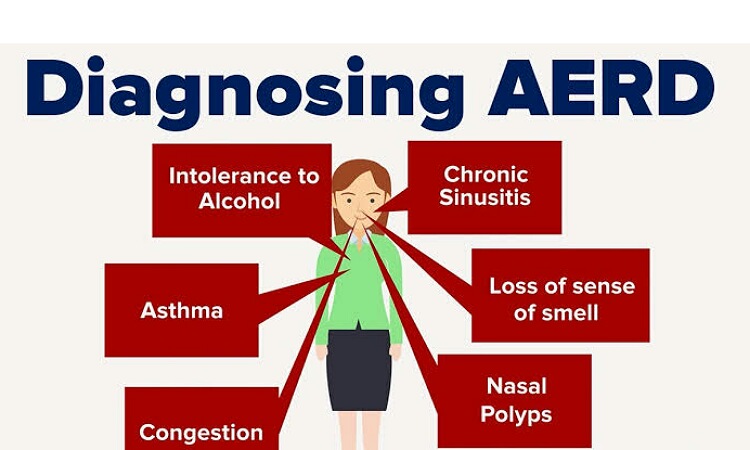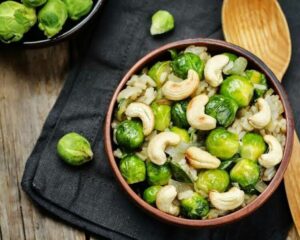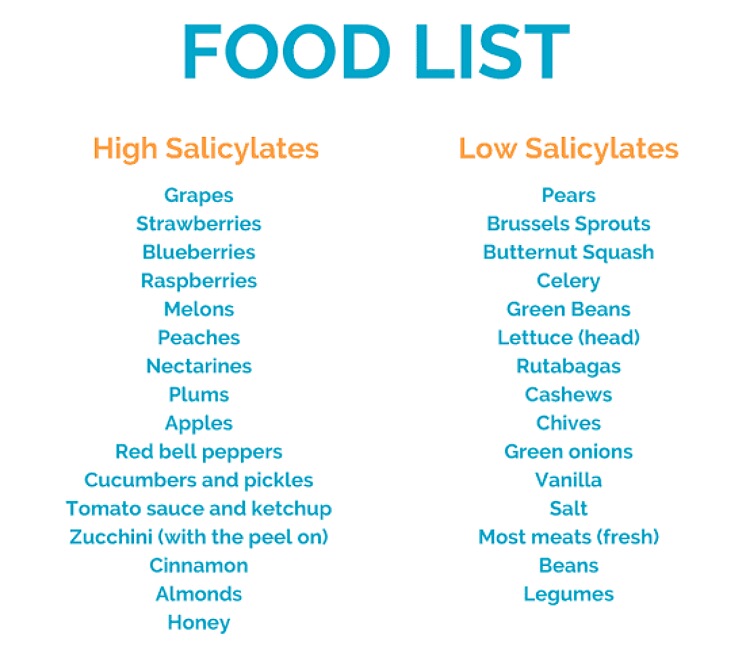There are some people in the world who are allergic to aspirin or acetyl salicylate. These people have aspirin exacerbated respiratory disease or AERD. Assuming that dietary salicylates might also cause them problems, doctors started advising them to follow a low salicylate diet! What is this diet? Is it necessary? Is it healthy?
Aspirin exacerbated respiratory disease or AERD
Aspirin exacerbated respiratory disease or AERD is a clinical entity that has bronchial asthma, nasal polyposis with rhinosinusitis and aspirin intolerance. This is Samter’s triad. It is due to non-allergic hypersensitivity reaction.
In this, there is an abnormality in the lipoxygenase (LO) pathway and the cyclooxygenase (COX) pathways of arachidonic acid metabolism.

Due to this, there are changes in the synthetic capacities of eicosanoids, prostaglandins (PG) and leukotrienes (LTs). PGs especially PG E2 is decreased while synthesis of cysteinyl LT (Cys-LT C4, D4, E4) is more. The former are anti-inflammatory. And this imbalance leads to nasal congestion, anosmia, nasal polyps, bronchial hyperactivity, sinusitis and intolerance to aspirin or acetyl salicylate.
The low salicylate diet
Salicylates are naturally found in some plant sourced foods such as most fruits and vegetables, tomato sauces, herbs, spices, and wine.
Decades ago, many health experts and doctors believed that it was the salicylates in aspirin that was the culprit and caused the varied symptoms of AERD. Hence, they began advising the patients of AERD to avoid all foods that had high content of salicylates in them. This formed the low salicylate diet for these patients.

The patients were advised to consume low salicylate foods and avoid foods that contain large amounts of salicylates in them. This implied that a person on this diet has to avoid all sorts of fruits and vegetables.
Is such a diet necessary? Is it healthy?
Max Samter, the American-German doctor who did a lot of studies on AERD believed that persistence of symptoms in AERD after withdrawal of aspirin was due to salicylates in foods. But now it is clear that it is not the salicylate moiety of aspirin (acetyl salicylate) but the acetyl part that causes the reaction. It is this part that inhibits the COX-1 enzyme and leads to reduction in pain and swelling but also gives rise to AERD. And dietary salicylate do not have acetyl in it. Hence they do not cause the reaction. Therefore, it is not necessary to advise patients of AERD to omit high salicylate foods from the daily diet.

In one study, AERD patients were given high doses of sodium salicylate and their condition did not worsen. Another small study showed improvement of symptoms with low salicylate diet but it was a poorly designed study. The improvement in these patients might be due to elimination of alcohol by these recruits. Alcohol have polyphenols in them and these can cause similar problems. Catechins in red wine are also known to produce this reaction. Therefore, the improvement might not have been due to the diet but due to other changes that the person does in his lifestyle.
Also, read Which anti-inflammatory spice added to morning cup of coffee can overcome bloating?
The diet is not advisable because it does not help and also because it is not healthy. Fruits and vegetables have a lot of nutrients in them. And eliminating them can harm the body by leading to nutrients deficiencies and causing chronic health conditions.
